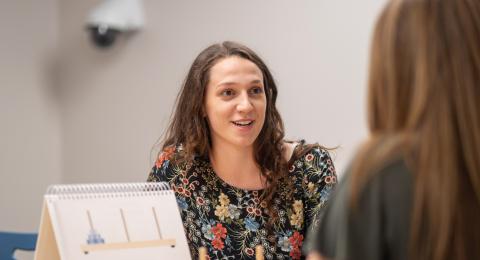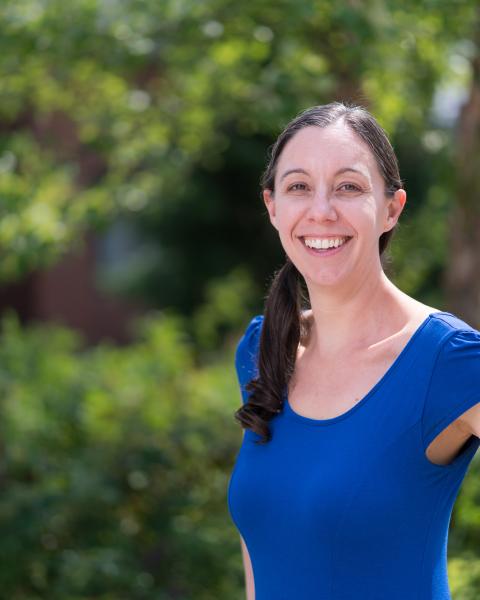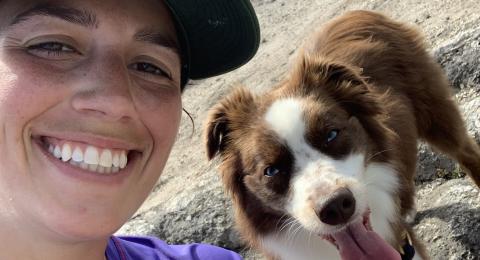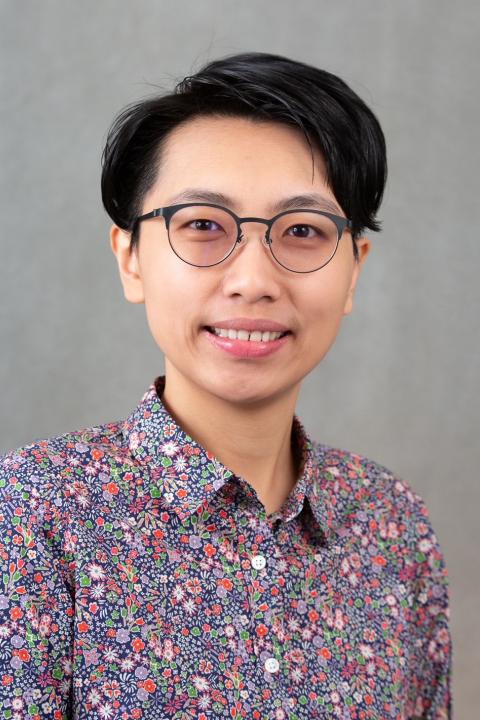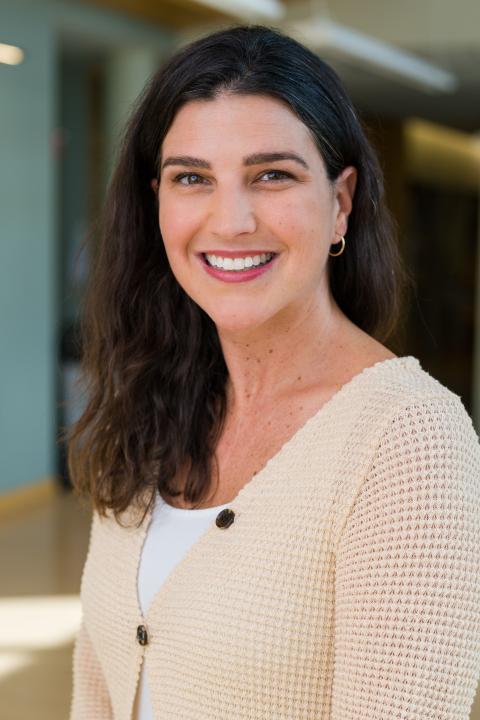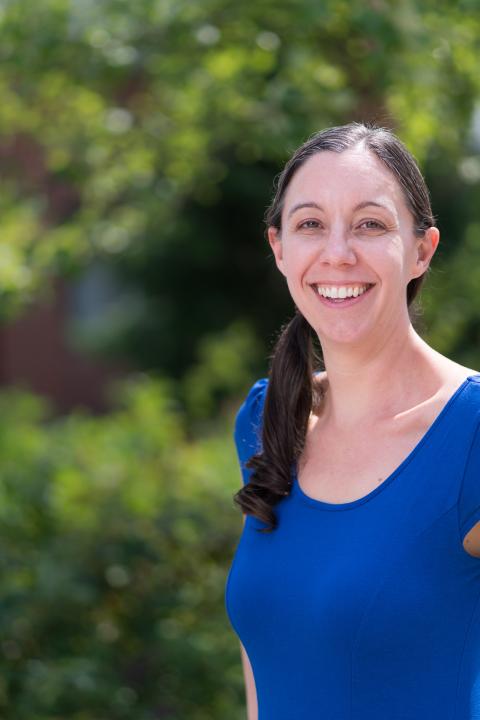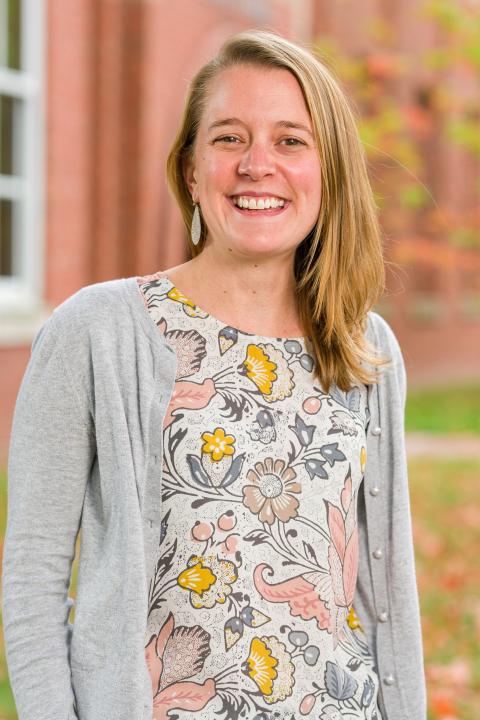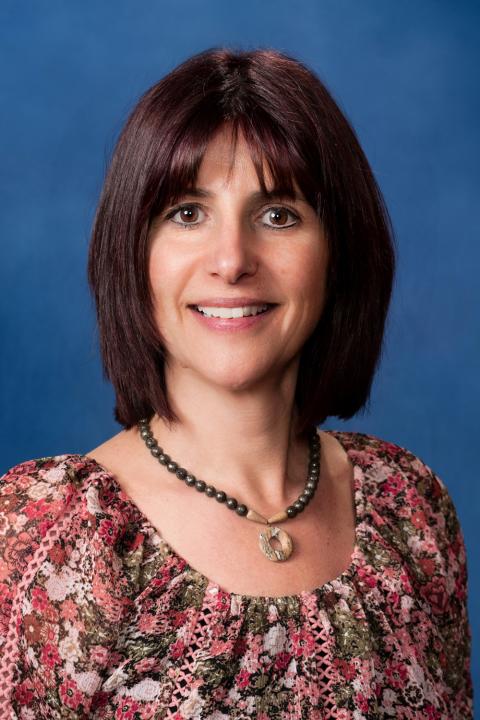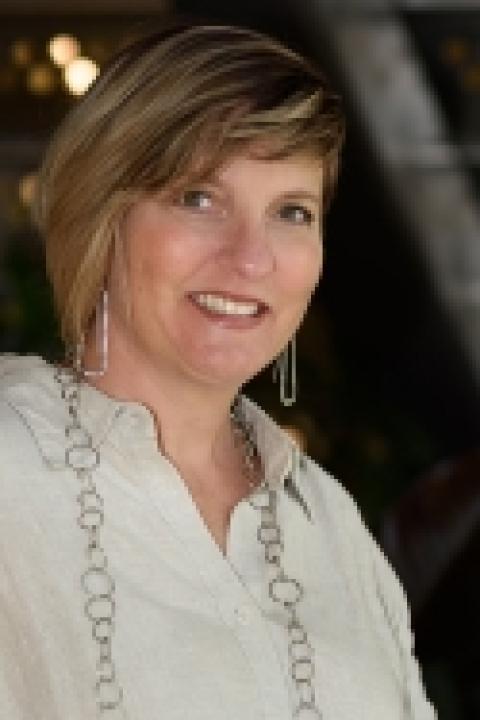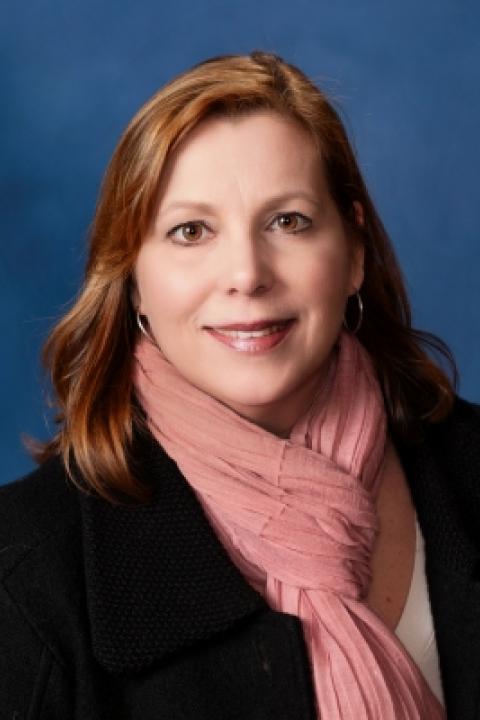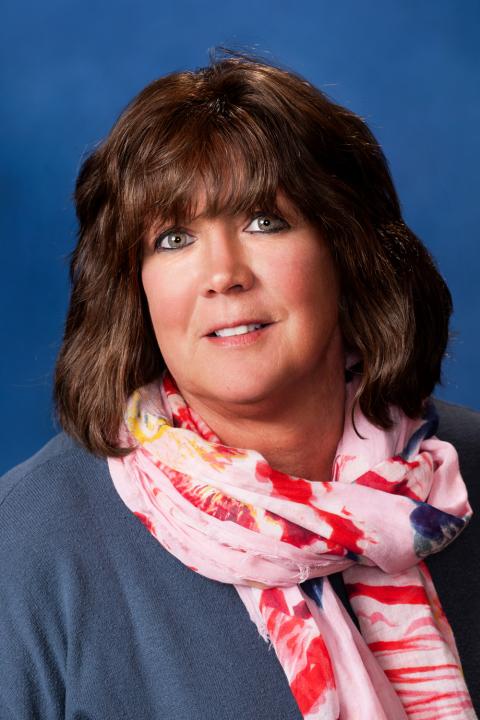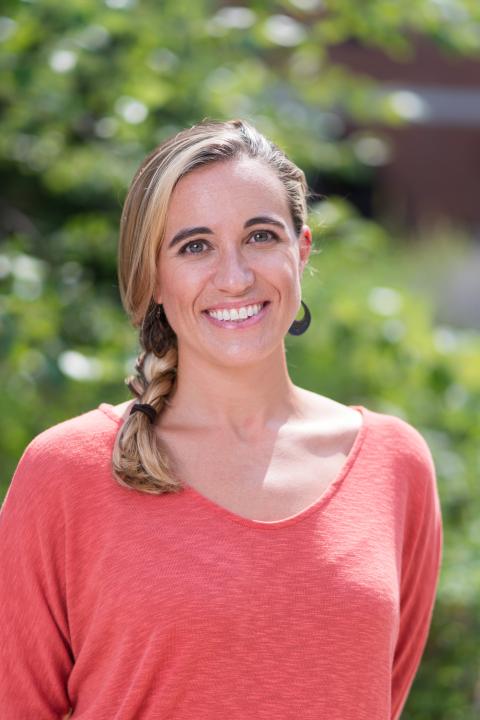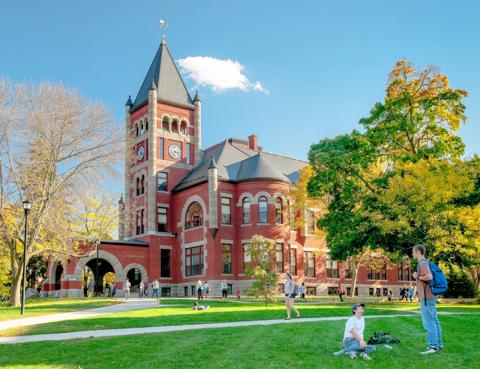WHY GET A MASTER’S DEGREE IN COMMUNICATION SCIENCES AND DISORDERS?
The Communication Sciences and Disorders M.S. prepares students for a career as a speech-language pathologist in a variety of settings, such as schools, hospitals and private practice. Speech-language pathologists address all types of communication disorders and help individuals across the lifespan, for example; children in need of speech therapy and individuals following traumatic brain injury or stoke. In addition, training prepares students to work with clients who have feeding and swallowing difficulties or those who seek changes in communication associated with professional or individual needs (e.g. gender transition). Our program provides a broad general curriculum, while allowing you the flexibility to take elective courses that deepen your knowledge within your area of interest. From your first semester, you will gain valuable hands-on clinical experience. Whether you’re interested in healthcare, educational settings or research, you’ll be prepared for numerous rewarding career opportunities in this high-demand field.
WHY CHOOSE UNH’S COMMUNICATION SCIENCES AND DISORDERS DEGREE PROGRAM?
Our program places strong emphasis on education, clinical experience and research. All graduate students have the opportunity to participate in ongoing research in the department’s comprehensive research labs. Learners can also participate in a variety of clinical training opportunities, including supervised clinical experiences through the UNH Speech-Language-Hearing Center and the Clinic for Neurogenic Communication Disorders. Students will complete two externships, which are available in a variety of settings, including early intervention programs, language-based preschool programs, public and private schools, private practices and healthcare facilities.
POTENTIAL CAREER AREAS
- Clinical practice
- Education
- Faculty research
- Rehabilitation
- Skilled nursing
From the CHHS Blog
Curriculum & Requirements
The graduate program in Communication Sciences and Disorders prepares students for professional practice with individuals who face communication challenges across the life span in any practice setting. Students complete a combination of required and elective courses and clinical practicum to apply theory to practice. Students complete a variety of practicum experiences in the university clinic as well as educational, rehabilitative, and private practice settings to enhance applied learning. The Graduate Program of Study includes two full years of study, including two summers and J-term.
All graduate students will complete a combination of required and elective courses and clinical practicum to earn a minimum of 53 credits. Clinical practicum meets the requirements of the Council for Clinical Certification (CFCC) in Audiology and Speech-Language Pathology, including a minimum of 400 clinical experience hours.
| First Year | ||
|---|---|---|
| Summer | Credits | |
| COMM 801 | Principles of Assessment | 2 |
| COMM 802 | Principles of Intervention | 2 |
| Credits | 4 | |
| Fall | ||
| COMM 803 | Ethical and Professional Issues in Communication Sciences and Disorders I | 1 |
| COMM 805 | Research Methods in Communication Sciences and Disorders | 3 |
| COMM 811 | Brain and Behavior | 3 |
| COMM 821 | Speech Sound Disorders | 3 |
| COMM 831 | Early Childhood Language Disorders | 3 |
| COMM 870 | Clinical Practicum | 1 |
| Credits | 14 | |
| January Term | ||
| COMM 804 | Counseling Clients and Families with Communication Disorders | 2 |
| Credits | 2 | |
| Spring | ||
| COMM 812 | Dysphagia | 3 |
| COMM 824 | Motor Speech Disorders | 3 |
| COMM 832 | School-Age & Adolescent Language Disorders | 3 |
| COMM 833 | Aphasia in Adults | 3 |
| COMM 870 | Clinical Practicum | 2 |
| Credits | 14 | |
| Second Year | ||
| Summer | ||
Elective Course (Optional) | ||
| Credits | 0 | |
| Fall | ||
| COMM 843 | Augmentative and Alternative Communication | 3 |
| COMM 872 | Externship | 4 |
| COMM 870 | Clinical Practicum (Assessment Clinic, taken Fall or Spring) | 1 |
| Elective Course | 2 | |
| Credits | 10 | |
| Spring | ||
| COMM 823 | Voice Disorders | 3 |
| COMM 872 | Externship | 4 |
| Elective Course | 2 | |
| Credits | 9 | |
| Total Credits | 53 | |
All graduate students will complete a combination of required and elective courses and clinical practicum to earn a minimum of 53 credits total. Clinical practicum meets the requirements of the Council for Clinical Certification (CFCC) in Audiology and Speech-Language Pathology, including a minimum of 400 clinical experience hours.
| Code | Title | Credits |
|---|---|---|
| REQUIRED COURSES (minimum of 53 credits) | ||
| COMM 801 | Principles of Assessment | 2 |
| COMM 802 | Principles of Intervention | 2 |
| COMM 803 | Ethical and Professional Issues in Communication Sciences and Disorders I | 1 |
| COMM 804 | Counseling Clients and Families with Communication Disorders | 2 |
| COMM 805 | Research Methods in Communication Sciences and Disorders | 3 |
| COMM 811 | Brain and Behavior | 3 |
| COMM 812 | Dysphagia | 3 |
| COMM 821 | Speech Sound Disorders | 3 |
| COMM 823 | Voice Disorders | 3 |
| COMM 824 | Motor Speech Disorders | 3 |
| COMM 831 | Early Childhood Language Disorders | 3 |
| COMM 832 | School-Age & Adolescent Language Disorders | 3 |
| COMM 833 | Aphasia in Adults | 3 |
| COMM 843 | Augmentative and Alternative Communication | 3 |
| COMM 870 | Clinical Practicum (Minimum of 4 rotations) | 1 |
Diagnostic Clinic (Fall or Spring of Year 2) | ||
| COMM 872 | Externship (Minimum of 2 rotations) | 4 |
| Code | Title | Credits |
|---|---|---|
| ELECTIVE COURSES (minimum of 4 credits) | ||
| COMM 841 | Cognitive Communication Disorders | 2 |
| COMM 842 | Autism Spectrum Disorders | 2 |
| COMM 895 | Special Topics | 2 |
Special Topics include: Language Acquisition, fMRI and the Human Brain, Social Communication, Augmentative and Alternative Communication, Neural Bases of Cognition and Language in Aging and Acquired Brain Injury | ||
| COMM 899 | Master's Thesis | 6 |
Clinical Practicum
All students are required to complete a minimum of four practicum rotations and two externships during their graduate studies. UNH requires students to have 15 documented observation hours prior to the start of clinical work. Since the UNH CSD Graduate Program is a full-time program, we expect students to be available for clinical assignments when not in class.
In year 1, practicum assignments take place at the UNH Speech-Language-Hearing Center and the Clinic for Neurogenic Communication Disorders during the fall, spring, and summer sessions. In year 2, students complete one semester of diagnostic clinic at the UNH SLHC along with two externships at two different settings. Externships are available at a broad range of department-approved settings, including early intervention programs, education, rehabilitation, health care settings, and private practices.
Students are responsible for transportation to externship locations and other community learning experiences. Externship sites may require a physical, including a tuberculin test; proof of immunizations such as poliomyelitis, rubella and hepatitis; health insurance; and drug/urine testing. In addition, students are responsible for meeting the criminal record clearances established by the practicum site. Failure to pass required medical and other clearance checks could render a student ineligible for a practicum assignment and thus unable to complete program requirements.
Capstone Experience
All graduate students are required to complete a capstone experience - either the Comprehensive Examination or a Master's Thesis.
Comprehensive Examination (Non-thesis)
All students (except those writing a thesis) must pass a Comprehensive Examination designed to assess their mastery of and ability to integrate information from the two-year curriculum. Students will be provided one case study and participate in an oral exam related to the case. To participate in the comprehensive examination students must be in their final semester of graduate studies, have no incompletes or unremediated course failures, be in their final semester for externship experiences, and have no unfilled clinical improvement plans. Students must pass oral exam to pass the comprehensive examination and be eligible to receive the master's degree.
Thesis
Students may conduct research and write a thesis in lieu of the Comprehensive Examination. Upon completion of an original research project, students must defend the thesis in an oral examination and must gain approval of the thesis committee. In addition to required coursework, students must register for 6 credits of COMM 899 Master's Thesis.
Additional Requirements
In addition to the academic and clinical requirements, the UNH Department of Communication Sciences & Disorders requires students to demonstrate certain essential skills needed to practice as a speech-language pathology. These Essential Functions, as distinguished from academic standards, include communication, motor, cognitive, sensory, and behavioral-social abilities that are necessary for satisfactory completion of the curriculum and for professional practice. Some of these abilities should be in place when students begin the program, while others will be developed throughout the program.
Students accepting an offer of admission as well as students in the program are expected to demonstrate these essential functions with or without reasonable accommodations to successfully complete degree requirements. Early each fall, the Essential Functions Policy will be reviewed with new students beginning our program. Students are expected to sign that they have reviewed and understand the policy and will follow the stated guidelines.
Accelerated Master's Overview
Accelerated Master’s programs offer qualified University of New Hampshire undergraduate students the opportunity to begin graduate coursework in select graduate programs while completing a bachelor’s degree. Accelerated master's programs are designed to provide students with an efficient and cost-effective pathway to earn both a bachelor's and master's degree or graduate certificate, enhancing career opportunities and long-term earning potential.
Accelerated Master's Highlights
- Begin studying advanced topics while an undergraduate student with the opportunity to complete a master’s degree or graduate certificate early.
- Master’s degree program students: Earn up to 12* graduate (800-level) course credits while completing a bachelor’s degree. This coursework will count as dual-credit toward both the bachelor’s and master’s degrees.
- Graduate certificate program students: Earn up to 8* graduate (800-level) course credits while completing a bachelor’s degree. This coursework will count as dual-credit toward both the bachelor’s degree and the graduate certificate.
- Students complete the bachelor’s degree, and then officially matriculate into the master’s or graduate certificate program to complete the remaining required graduate-level coursework.
*Some exceptions apply.
Accelerated Master's Admission Requirements
- A minimum 3.2 cumulative GPA is required.*
- A minimum of 90 undergraduate credits must be completed prior to enrolling in graduate (800-level) courses.
- Streamlined Graduate School Application (two letters of recommendation; most standardized tests and application fee are waived).*
*Some exceptions apply.
Accelerated Master's Requirements
- Students must attend a mandatory orientation session.
- Students must submit a special registration form each semester for dual-credit courses and note any DegreeWorks exceptions.
- Students may defer graduate matriculation for up to one year after earning their bachelor’s degree in most programs.
- See the Accelerated Master’s Catalog Policy and Accelerated Master’s Website for additional information and a list of programs. Note that some programs have additional requirements (e.g. higher-grade expectations) compared to the general policy.
Communication Sciences and Disorders (M.S.) Accelerated Option
This graduate degree program is approved to be taken on an accelerated basis in articulation with the following undergraduate program(s):
| Code | Title | Credits |
|---|---|---|
| Communication Sciences and Disorders (B.S.) | ||
| Students select from the following approved 800-level courses that can be completed in the undergraduate senior year for dual credit: | ||
| COMM 801 | Principles of Assessment | 2 |
| COMM 802 | Principles of Intervention | 2 |
| COMM 803 | Ethical and Professional Issues in Communication Sciences and Disorders I | 1 |
| COMM 811 | Brain and Behavior | 3 |
| COMM 821 | Speech Sound Disorders | 3 |
Additional Information
Program Eligibility*
- Current UNH student in good standing
- Overall GPA of 3.5+ at the time of application (i.e., including grades from fall semester junior year), GPA must be based on a minimum of 3 semesters at UNH
- Completed a minimum of 86 credits earned/completed (i.e., not including credits in progress). Ideally, 89 credits is preferred.
- The Graduate School requires that students complete 90 credits before enrolling in 800 level courses.
- Complete all CSD-required courses for Years 1 and 2 (see curriculum)
- Completed KIN 706 Neurology, COMM 504 Basic Audiology Intro to Audiology, and COMM 741 Speech-Language Pathology I.
- Enrolled in COMM 742 Neurological Foundations of Communication Disorders Across the Lifespan (and all its prerequisite coursework) and COMM 705 Introduction to Aural Rehabilitation for spring semester junior year
* Important: Eligibility does not ensure acceptance to the AM program.
The AM program is designed for and best suited to students who begin the CSD program as Freshmen (in Year 1). Students who transfer into the major may be eligible for the AM program but will need to meet all the above criteria.
Timeline for AM program:
- Prior to registering for Spring Year 2 courses: Discuss interest in AM program with UG advisor to begin accelerating program (i.e., enroll in 20 credits in Spring, Year 2)
- By the first day of classes in Fall of Year 3: Declare eligibility (submit Intent to Apply to csd.department@unh.edu )
- During Fall of Year 3: Enroll in COMM 741 Pediatric Speech and Language Disorders: Foundations in Clinical Decision-Making (and COMM 723 Observation Skills in Speech-Language Pathology)
- By the end of Fall of Year 3: Meet 3.5+ GPA requirement
- By the application due date: Submit application to AM program
- During Spring of Year 3: Enroll in COMM 705 Introduction to Aural Rehabilitation and COMM 742 Neurological Foundations of Communication Disorders Across the Lifespan
- By April 15 of Year 3, if offered admission to the AM program:
- Accept or reject offer of admission to AM program by emailing csd.department@unh.edu
- Complete and return documentation of intent to accept to the Graduate School
- During Summer between Years 3 and 4: Enroll in 2 800-level courses
- COMM 801 Principles of Assessment
- COMM 802 Principles of Intervention
- During Fall of Year 4: Enroll in 3 800-level courses + COMM 724 Senior Capstone (or COMM 799: Honors Thesis) (also: COMM 723 Observation Skills in Speech-Language Pathology if not already taken):
- COMM 803 Ethical and Professional Issues in Communication Sciences and Disorders I
- COMM 811 Brain and Behavior
- COMM 821 Speech Sound Disorders
By the end of the Fall Semester of Year 4: Complete 128 credits and graduate with a BS degree
Sample Degree Plan Bachelor's/Master's
| First Year | ||
|---|---|---|
| Fall | Credits | |
| COMM 420 | Survey of Communication Disorders | 4 |
| PSYC 401 | Introduction to Psychology | 4 |
| BMS 507 | Human Anatomy and Physiology I | 4 |
| ENGL 401 | First-Year Writing | 4 |
| Credits | 16 | |
| Spring | ||
| MATH 420 | Finite Mathematics | 4 |
| LING 405 | Introduction to Linguistics | 4 |
| PHYS 409 | Investigating Physics | 4 |
| Discovery/Writing Intensive or Elective Course | 4 | |
| Credits | 16 | |
| Second Year | ||
| Fall | ||
| COMM 521 | Anatomy and Physiology of the Speech and Hearing Mechanisms | 4 |
| COMM 524 | Clinical Phonetics | 4 |
| PSYC 402 | Statistics in Psychology | 4 |
| Credits | 12 | |
| Spring | ||
| COMM 522 | Language Acquisition | 4 |
| COMM 636 | Speech and Hearing Science | 4 |
| PSYC 581 | Child Development | 4 |
| Discovery/Writing Intensive or Elective Course | 4 | |
| Discovery or Elective Course | 2-4 | |
| Credits | 18-20 | |
| Third Year | ||
| Fall | ||
| COMM 504 | Basic Audiology | 4 |
| KIN 706 & KIN 707 | Neurology and Neurology Lab | 6 |
| COMM 741 | Pediatric Speech and Language Disorders: Foundations in Clinical Decision-Making | 4 |
| Discovery or Elective Course | 4 | |
| COMM 723 | Observation Skills in Speech-Language Pathology | 2 |
(or other 2-credit elective) | ||
| Credits | 20 | |
| Spring | ||
| COMM 705 | Introduction to Aural Rehabilitation | 4 |
| COMM 742 | Neurological Foundations of Communication Disorders Across the Lifespan | 4 |
| Discovery or Elective Course | 4 | |
| Discovery or Elective Course | 4 | |
| Credits | 16 | |
| Fourth Year | ||
| Summer | ||
| COMM 801 | Principles of Assessment | 2 |
| COMM 802 | Principles of Intervention | 2 |
| Credits | 4 | |
| Fall | ||
| COMM 811 | Brain and Behavior | 3 |
| COMM 821 | Speech Sound Disorders | 3 |
| COMM 803 | Ethical and Professional Issues in Communication Sciences and Disorders I | 1 |
| COMM 723 | Observation Skills in Speech-Language Pathology | 2 |
| (if not taken in Third Year fall) | ||
| COMM 724 or COMM 799 | Senior Capstone (Professional Issues in Speech Language Pathology W: Writing Intensive)) or Honors Thesis | 4 |
| Elective and/or Discovery Course | 2-7 | |
| Credits | 15-20 | |
| Spring | ||
| COMM 812 | Dysphagia | 3 |
| COMM 824 | Motor Speech Disorders | 3 |
| COMM 832 | School-Age & Adolescent Language Disorders | 3 |
| COMM 833 | Aphasia in Adults | 3 |
| COMM 870 | Clinical Practicum | 1 |
| Credits | 13 | |
| Fifth Year | ||
| Fall | ||
| COMM 805 | Research Methods in Communication Sciences and Disorders | 3 |
| COMM 831 | Early Childhood Language Disorders | 3 |
| COMM 843 | Augmentative and Alternative Communication | 3 |
| COMM 870 | Clinical Practicum | 2 |
| COMM 870 | Clinical Practicum (Diagnostic Clinic Fall or Spring) | 1 |
| Fall Elective Courses | 2-4 | |
COMM 842 | Autism Spectrum Disorders | |
COMM 895 | Special Topics | |
| Credits | 14-16 | |
| January Term | ||
| COMM 804 | Counseling Clients and Families with Communication Disorders | 2 |
| Credits | 2 | |
| Spring | ||
COMM 872 | Externship | |
COMM 823 | Voice Disorders | |
COMM 870 | Clinical Practicum (Diagnostic Clinic Fall or Spring) | |
| Spring Elective Courses | 2-4 | |
COMM 895 | Special Topics | |
| Summer | ||
COMM 872 | Externship | |
| Credits | 2-4 | |
| Total Credits | 148-159 | |
Program Learning Outcomes
- Demonstrate Appropriate Knowledge of Professional Practice
- Demonstrate Knowledge of Foundations of Speech-Lang Pathology Practice
- Demonstrate Knowledge of Identification and Prevention of Speech-Language and Swallowing Disorders and Differences
- Demonstrate Knowledge of Evaluation of Speech-Language Disorders and Differences
- Demonstrate Knowledge of Intervention of Speech-Language and Swallowing Mechanisms
- Demonstrate General Knowledge and Skills Applicable to Professional Practice
Professional Licensure/Certification Disclosures
The University of New Hampshire offers a number of academic programs designed to lead to professional licensure or certification in New Hampshire. However, completing a UNH degree/program does not guarantee professional licensure or certification. Eligibility may also depend on factors like years of work experience, professional examinations, passing a background check, and other criteria.
UNH does not guarantee that its professional licensure programs will satisfy the criteria of professional licensure boards in other states. Some states maintain different requirements for professional licensure or certification and requirements can change frequently. Federal regulations require the University to make public disclosure of certain information regarding professional licensure or certification programs, regardless of the modality the program is offered (i.e., in-person or online). The University provides guidance below but recommends students contact their state/territory licensing or certification board to ensure a program meets specific state/territory requirements.
Visit the Office of the Registrar's website for information about whether this program meets professional licensure requirements in your state.
Students hoping to apply to the Master of Science in Communication Sciences and Disorders at UNH should complete their application through the Communication Sciences and Disorders Centralized Application Service (CSDCAS). To do so, follow this link, create a login, search for "University of New Hampshire" in the list of available schools, and click on the "+" sign on the left side of the screen to begin your application. When applying through CSDCAS please use your UNH email address if you were a previous UNH student.
Deadline
Applications must be completed by the following deadlines in order to be reviewed for admission:
- Fall: N/A
- Spring: N/A
- Summer: Jan. 15
- Special: N/A
Application fee: $150
Campus: Durham
New England Regional: No
Accelerated Masters: Yes
New Hampshire Residents
Students claiming in-state residency must also submit a Proof of Residence Form. This form is not required to complete your application, but you will need to submit it after you are offered admission, or you will not be able to register for classes.
Transcripts
CSDCAS will require official transcripts to be uploaded to your portal.
Letters of recommendation: 3 required
Recommendation letters submitted by relatives or friends, as well as letters older than one year, will not be accepted.
Personal Statement
In no more than two pages, respond to the following prompts:
- We are interested in learning about you as a person. Describe your unique talents, interests, and/or experiences that make you who you are. Speculate about how these might contribute to your experience in our graduate program and/or to your future career.
- Describe your career path for the next 10 years - where do you see yourself professionally five years from now? Ten years from now?
- Discuss one issue in the field of communication sciences and disorders that currently interests you most. Why does this issue interest you?
-
Briefly discuss how research is important to the field of communication sciences and disorders.
- OPTIONAL (may increase page limit to a total of three pages) If you currently have interest in participating in research, pursuing a master thesis, and/or wish to be considered for a graduate research assistantship, briefly describe:
- why you are interested in research,
- any prior research experience you may have, and/or
- any knowledge or skills you have that would support your participation in research.
Important Notes
All applicants are encouraged to contact programs directly to discuss program-specific application questions.
Enrollment Deposit
This program requires an enrollment deposit of $200. If admitted the deposit will be due by the deadline specified in your admit letter. For more information please see our enrollment deposits help page.
International Applicants
Prospective international students are required to submit TOEFL, IELTS, or equivalent examination scores. English Language Exams may be waived if English is your first language. If you wish to request a waiver, then please visit our Test Scores webpage for more information.
Explore Program Details
The academic and clinical components of the graduate program are inherently linked. As a result, students may participate in clinical activities within academic courses as well as clinical experiences. Likewise, students participating in a clinical experience may be assigned a client whose specific needs do not correspond to a course. In this case, students will have to research the diagnosis, intervention approaches, etc. in consultation with their clinical supervisor.
All students are required to complete at least three practicum rotations and two externships during their graduate studies. During fall and spring semesters of year 1, students complete clinical work at the Speech-Language-Hearing Center (SLHC) and/or the Clinic for Neurogenic Communication Disorders (CNCD). During year 2, students complete one semester of diagnostic clinic at the CSD clinical programs along with two externships at two different settings. Students are responsible for transportation to externships and other community learning experiences.
UNH requires students to have 15 documented observation hours prior to the start of clinical work
Practicum assignments take place at the CSD clinical programs during year 1 of the graduate program. Students may be assigned clients from the Speech-Language-Hearing Center and/or Clinic for Neurogenic Communication Disorders. Since the graduate program is a full-time program, we expect students to be available for clinical assignments when not in class. Students must meet the criminal records clearance for participation in the CSD clinical programs.
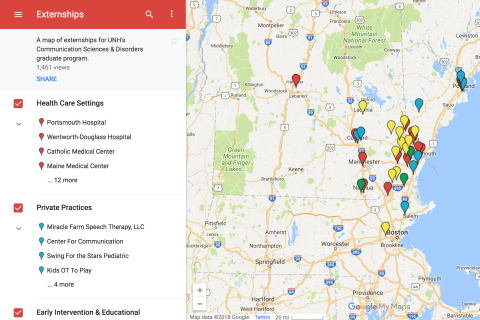
During year two of their graduate studies, students complete two externships at two different settings. Externships are available at a broad range of department-approved settings including public and private schools, language-based preschool programs, early intervention programs, healthcare settings and private practices. Externship sites may require a physical, including a tuberculin test; proof of immunizations such as poliomyelitis, rubella and hepatitis; health insurance; and drug/urine testing. In addition, students are responsible for meeting the criminal record clearances established by the site. Failure to pass required medical and other clearance checks could render a student ineligible for an assignment and thus unable to complete program requirements.
This map shows a sample of available externships in New Hampshire, Maine, and northern Massachusetts. The map is color coded for setting type. Health care settings are displayed in red, private practices in blue, early intervention in green and educational settings in yellow. Select a marker on the map for more information about the setting.
There are several courses that are required for certification by the American Speech‐Language‐Hearing Association (ASHA), including foundational courses and preprofessional coursework in Communication Sciences and Disorders (CSD). If you have not completed these courses, you must complete these prerequisite courses prior to starting your graduate program at the University of New Hampshire.
ASHA‐Required Foundational Courses:
- Biological Science
- Physical Science (chemistry or physics)
- Statistics
- Social/Behavioral Science
CSD Prerequisite Courses:
*Course titles are from the UNH UG program; equivalent courses are acceptable
- Anatomy and Physiology of the Speech and Hearing Mechanism
- Language Acquisition
- Clinical Phonetics
- Basic Audiology
- Speech and Hearing Science
UNH CSD Prerequisite Course:
- Neurology (broad neuroanatomy and physiology)
* If you have not taken any coursework in neurology, a college‐level credit‐bearing course is required before beginning courses in the UNH CSD graduate program.
Highly Recommended Course:
- Aural Rehabilitation is highly recommended. If not completed upon admission to the program, students will be admitted conditionally with the expectation of completing the undergraduate course by the end of the first year.
Recommended online undergraduate course at UNH during the summer:
- KIN 706 Neurology (4 cr.) plus KIN 707 Neurology Lab (2 cr.)
Visit our website to see whether our program meets your professional licensure requirements.
